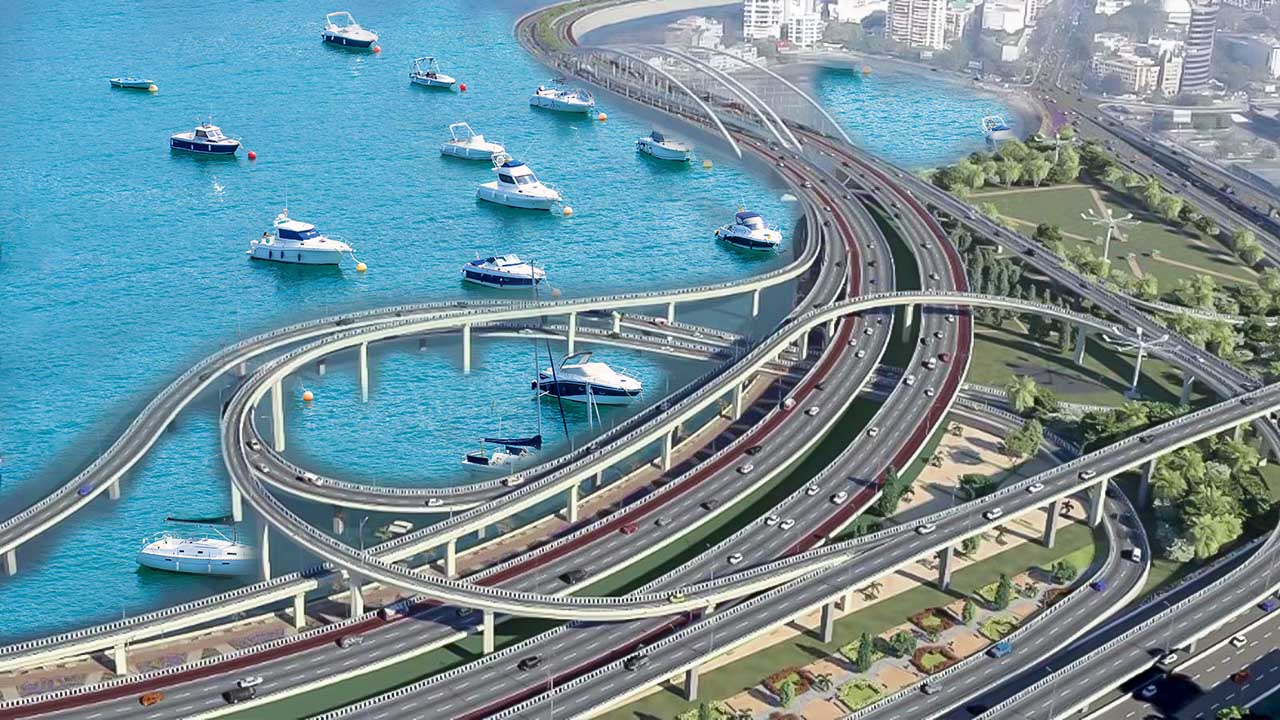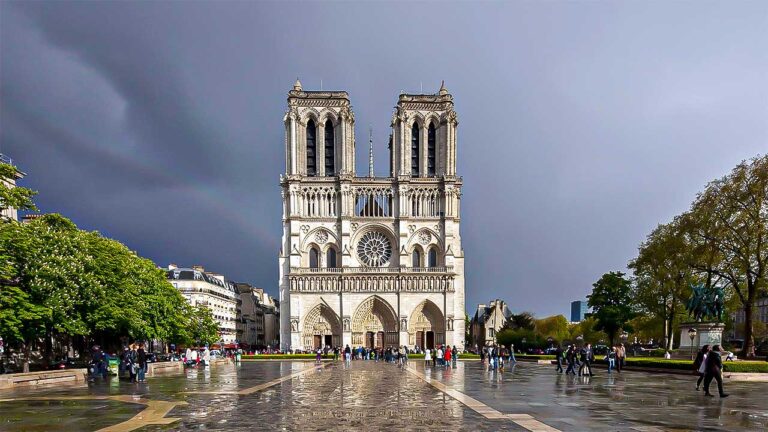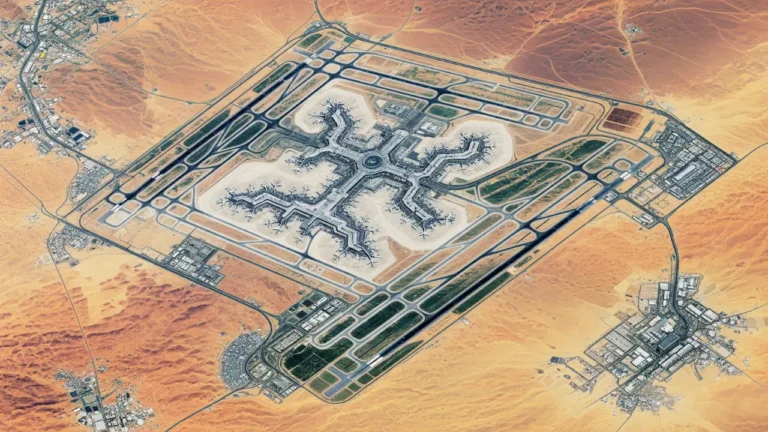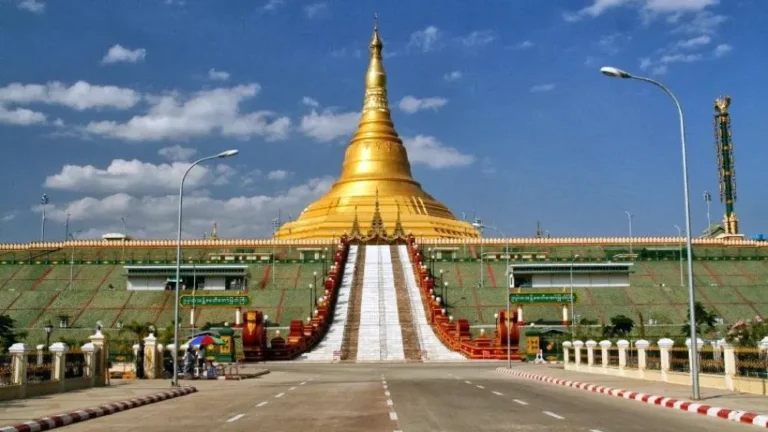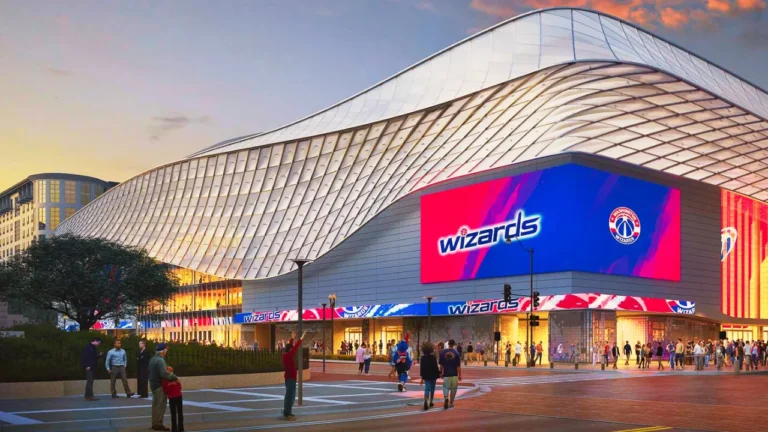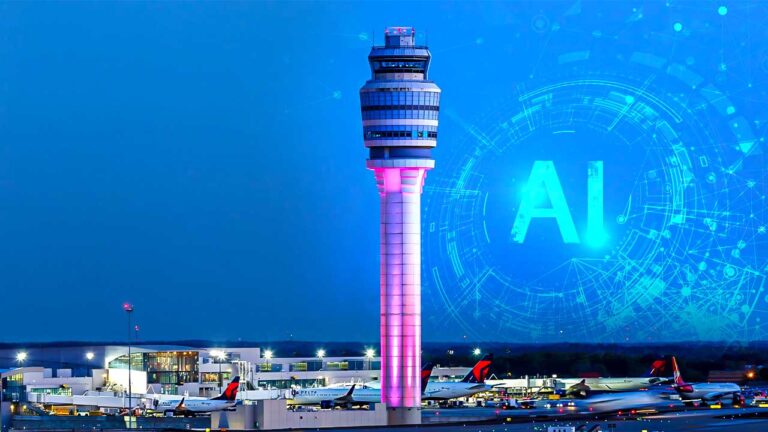India’s Mumbai Coastal Road Project Will Be the Game Changer
Traffic congestion is a major problem in most of the world’s major cities, which not only wastes fuel and time, but also contributes to air pollution. Such cities include Mumbai in the Indian state of Maharashtra, which is the seventh largest city in the world in terms of population. This commercial and economic hub of India contributes $310 Billion to the country’s economy, where traffic congestion is commonplace.
This peninsular city on India’s west coast faces serious traffic problems due to its growing population, as the natural boundaries created by the sea make it almost impossible to widen its roads further. Mumbai’s roads become a labyrinth of congestion and pollution every day.
In this city full of business and other activities of life, the complex network of roads and the traffic situation on it are no less than a challenge for those who reach their destination on time.
Public transport in this densely populated city is forced to provide more than its capacity, resulting in ever-growing chaos due to the increasing use of private vehicles. In such cities, of course, the result of more vehicles and less capacity on the roads always comes in the form of traffic congestion.
The result of all this situation has become a part of life in Mumbai in the form of severe air pollution, which is sure to increase the risks to people’s health and the environment.
Also Read: Royal Atlantis: The Building That Completely Changed the Concept of Luxury Lifestyle
Mumbai’s air filled with toxic vehicular fumes calls for urgent measures to save its under-stressed ecosystem. This is the Mumbai Coastal Road, a master project of the Government of Maharashtra that is fast approaching completion. Mumbai’s Coastal Road Project will not only play an important role in the development of the city’s infrastructure but also in redefine the city’s anatomy. This 29.2 Km Long 8-Lane Expressway running along the west coast of the city will play a significant role in reducing traffic congestion in Mumbai. This project will not only save time and fuel in commuting from one corner of the city to the other without getting stuck in traffic jams, but will also help in reducing air pollution.
This coastal road project will provide ease of travel and also help in tackling the multifaceted urban challenges Mumbai faces.
The project, worth about $1.6 Billion, will prove to be ideal for increasing the quality of life in the city and providing ease of connectivity.
Combining innovative engineering and urban planning, this project will bring significant changes to Mumbai’s transportation landscape. Undersea tunnels and interchanges are also being included in this project with great sophistication. The tunnels will interlink seven locations, four of which will be used for vehicles. Besides, these tunnels will also have automated emergency control rooms. Another unique feature of the coastal road project is the 111 Hectares of Reclaimed Land from the sea, for which around 3 Million Tons Of Rock is being put through a testing phase to ensure the resilience and robustness of reclaimed land.
The project is introducing the Monopile foundation technology for the construction of 176 Single Pillars with a single column running from bottom to top of the bridge, which was decided to take inspiration from a few examples in the world, such as the Clackmannanshire Bridge in Scotland. This innovative approach will be cost effects and a great alternative to traditional methods of foundations. In this way, the environmental impact of the project and the construction timeline will also be reduced by 3 Months.
Despite these debates, proponents of the project emphasize its holistic approach to urban infrastructure, highlighting its meticulous planning. Apart from the remarkable construction techniques, the design of the project is being described as precisely in line with the futuristic requirements for urban infrastructure. The project with new roads, pathways and greenery is in the final stages of preparation to be integrated with the existing road network in Mumbai. The design of the Mumbai Coastal Road project will include open green spaces, 8.5 Kilometer Long and 20-Meter-Wide coastal promenades, sea or breakwater wall and viewpoints that will provide opportunities for tourists to enjoy the breathtaking views of the Arabian Ocean.
Additionally, the project will significantly reduce travel time compared to congested inner-city roads. In the same project, bus rapid transport facility is also being introduced which will lead to a revolutionary change in Mumbai’s public transportation.
The modern buses to be included in this system will have a capacity of 190 To 250 Passengers, which will fill the lack of efficient and swift public transport in the city. The BRT Lane of the Mumbai Coastal Road project will be monitored by CCTV, to ensure exclusive use by buses and ambulances, thereby increasing the efficiency and safety of public transport.
Also Read: MOSE Venice: The $7 Billion Flood Defense Megaproject That Failed
The Mumbai Coastal Road project will provide much-needed relief from the heavy traffic, and ensure better vehicle movement between the freeway and the local roads. Besides the creation of 70 Hectares of Green Space, the project will lower the city’s pollution levels.
Investors also believe that the project spanning across major residential hubs holds the potential to improve the city’s real estate market. Not only would it improve transportation routes, but it will also increase home demand in the neighboring areas.
The project is divided into Three Key Packages, each of which will address unique challenges and integrate with Mumbai’s existing infrastructure. These packages include elevated roads, bridges and tunnels and each component will play a vital role in Mumbai’s transportation landscape. Efforts have been made in this project to balance urban development and amenities with environmental impact. The Mumbai Coastal Road project has also taken into consideration the conservation of marine life and ecological impacts have been carefully assessed during the construction activities.
In this regard, the selection and testing of rocks selected for land reclamation has been taken into consideration to ensure that this action causes minimal disturbance to the marine ecosystem. In addition, substantial green areas have been included in the project design, which is 32% of the project area. These places will not only help in improving the air quality of the city, but also contribute in biodiversity enhancement.
The environmental perspective of the project will reduce traffic congestion and improve Mumbai’s air quality, as the coastal road project will substantially reduce carbon emissions. Under the same idea, BRT has been included in the Mumbai Coastal Road Project, so that public transportation is preferred over private vehicles. In this way, the dream of a clean and green Mumbai will soon be turned into a reality.
Despite all these efforts, the project continues to be criticized. The Mumbai Coastal Road Project construction work began in October 2018, but faced serious opposition from locals, environmentalists, and the fisherman community. Environmental activists questioned the project’s impact on the environment. The fishermen communities were worried about the effect of the project on their livelihood, while the locals feared that they would no longer be able to enjoy the sea view.
Apart from this, various groups are also highlighting the potential ecological damage of the project and its potential negative impact on marine life and coastal ecosystems in particular. Despite careful planning and execution, the long-term impact of land reclamation on Mumbai’s coastline continues to be criticized. The legal battle between the people and the administration is still going on, while on the other hand, the environmental and social impacts of the project are also discussed in public debates.
The Bombay High Court had issued a stay order on the construction of the project in April 2019 after receiving several petitions at the start of the project. Later, after the administration filed an appeal, the Supreme Court ordered the revival of the Mumbai Sahil Road project in May 2019.
Critics say the project has displaced many communities, particularly fishermen and others who live along the city’s coastline. Not only has the project been delayed due to such constraints, but the future of sustainable urban development projects in India has also been widely discussed. Despite these debates, proponents of the project emphasize its holistic approach to urban infrastructure, highlighting its meticulous planning.
The Mumbai Coastal Road Project covering 29.2 Km Long Roads offers a unique perspective in the realm of urban mega projects.
Compared to the San Francisco Bay Bridge in the US and the Hangzhou Bay Bridge in China, the Mumbai Coastal Road project presents unique challenges in the presence of a densely populated urban and coastal environment.

